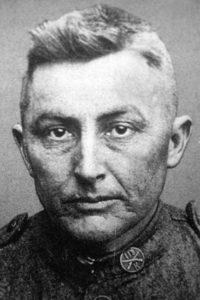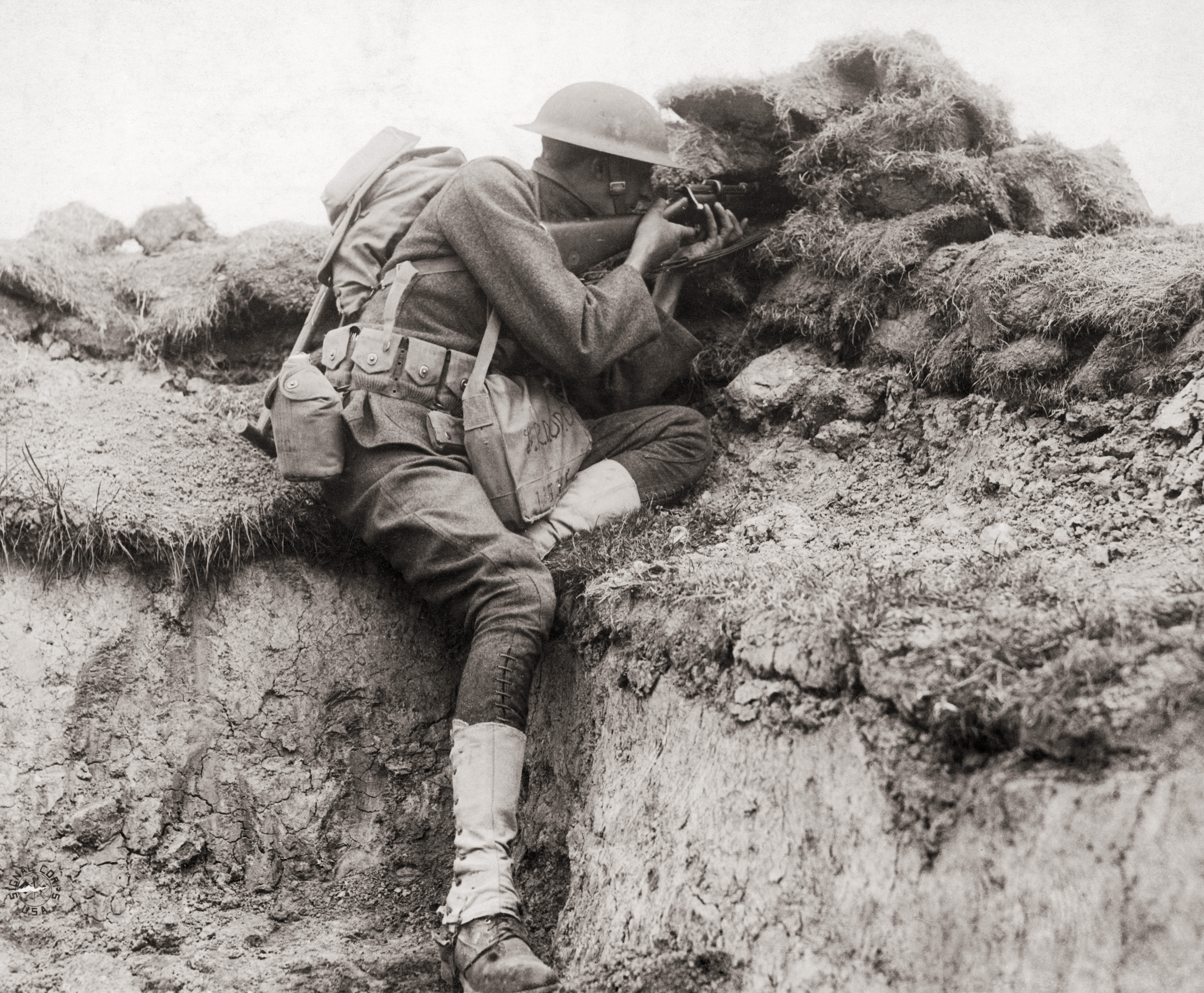“Fritz over thar tho’ght he was going to have a cinch with us raw Americans. But he’s found our chaps so nasty I believe he’s just about as soon change back to the French,” an unidentified American lieutenant told war correspondent Herman Whitaker of the New York Sun.
At the American entry into World War I in 1917, the Germans faced not only a massive influx of fresh troops, but a particular breed of stubborn American snipers who took a personal exception to German soldiers walking nonchalantly in No Man’s Land across the battlefields of Western Europe.
Despite the perceived raw unruliness of American troops, this quality also led to snipers such as the described “Tennessee moonshiner” who couldn’t “stand discipline,” writes Whitaker, but was one of “the finest shot[s] we’ve got; can pick the eye out of a Boche at 300 yards. To get the best out of him we just gave him a pass good anywhere along the lines and let him go to it.”
And while there was no shortage of American valor during the Great War, here are five snipers whose grit, tenacity, and skill showcased the “Doughboys” of World War I.
Army Corporal George Ogden, 28th Division, American Expeditionary Forces
While acting as a battalion scout in September of 1918, Ogden and a sergeant succeeded in repulsing two crews of enemy machine gunners by sniping. He then captured the German guns and turned them around on the enemy to quell a counterattack. Two months later, according to his Distinguished Service Cross citation, “while leading a patrol of ten men on the Vesle River, Corporal Ogden succeeded in getting on the flank of the enemy and by rifle fire forced about 100 to retreat from a trench in disorder, inflicting many casualties.”

Marine Corporal John H. Pruitt, 78th Company, 6th Regiment, 2nd Division
On October 3, 1918, Pruitt single-handedly rushed two German machine guns that were impeding his company’s advance. Sniping and killing both crews, shortly thereafter a total of 40 German soldiers in a dugout nearby surrendered to the lone Marine. Pruitt continued to snipe at the enemy until he was hit by shellfire and killed.
Pruitt was posthumously awarded both the Army Medal of Honor and the Navy Medal of Honor for the same act. He is one of five Marines during World War I to hold such a distinction.
Army Sergeant Harry Clark, 29th Division, American Expeditionary Forces
Remaining alone for two days in a sniper’s post ahead of the Allied front line, Clark managed to kill 12 enemy scouts while remaining at his post. Several days later, “when all of the officers of his company had been incapacitated,” Clark’s Distinguished Service Cross citation reads, he “took command and steadied his men by his own coolness and courage.”
Army Lieutenant David Hunter, 101st Infantry Regiment, 26th Division, American Expeditionary Forces
While under fierce machine-gun and sniper fire in Trugny Woods, France, Hunter led his battalion of scouts 200 yards ahead of the allied assault and within 30 feet of an enemy machine gun nest. His Distinguished Service Cross citation notes that Hunter managed to kill or wound “every member of the crew.” Crawling back under intense enemy fire, Hunter noted the positions of the German gun placements and reported back their locations, enabling his battalion to eventually clear the woods.

Army Private Herman Davis, 113th Infantry Regiment, 29th Division, American Expeditionary Forces
All of 5’3”, the 30-year-old Davis was initially rejected from military service before managing to enlist in 1918. Arriving to the trenches in France in July 1918, David immediately inquired as to why a troublesome German machine gun near the American front line had not been taken out. After being told that the 1,000-yard distance was too great a range for a M1903 Springfield rifle, the Arkansas native allegedly commented, “That’s jest a good shootin’ distance” and proceeded to take out all four of the enemy gunners. His shooting skills garnered the admiration of his superiors and enabled him to embark on a solo campaign to kill any German he came across.
By war’s end, Davis was awarded the Distinguished Service Cross, the Croix de Guerre with Palm, the Croix de Guerre with Gilt Star, and the Médaille Militaire. General John Pershing listed Davis fourth among the 100 greatest heroes or World War I.





